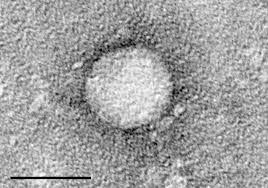
Like most viruses, CAV-1 first localizes and replicates in the lymph nodes and quickly spreads into the bloodstream from there. Once in the blood stream, CAV-1 attacks several organs, the liver, eyes, and kidneys. Although hepatitis is often a very serious disease, not all cases of CAV-1 infection will lead to the disease. Some dogs show few or no symptoms after being infected.
Once a dog is infected, there are no treatments that will destroy or remove the CAV-1 virus. There is no cure. The good news is, however, a very good vaccine can be given to puppies when they start their inoculations. This vaccine has greatly reduced incidents of canine hepatitis in the United States and most of Western Europe.
Symptoms of both CAV-1 hepatitis and hepatitis of unknown origin may include diarrhea, vomiting, jaundice, weight loss, depression and even severe weakness. Since there is no cure available, a veterinarian can only treat the symptoms to the best of his or her ability. Antibiotics are typically prescribed to prevent further infections.
Some specific breeds (specifically Doberman Pinschers and some terriers) can develop and suffer from chronic hepatitis. There is no cure for the disease and these animals will be infected for the rest of their lives. Please vaccinate your pets.




